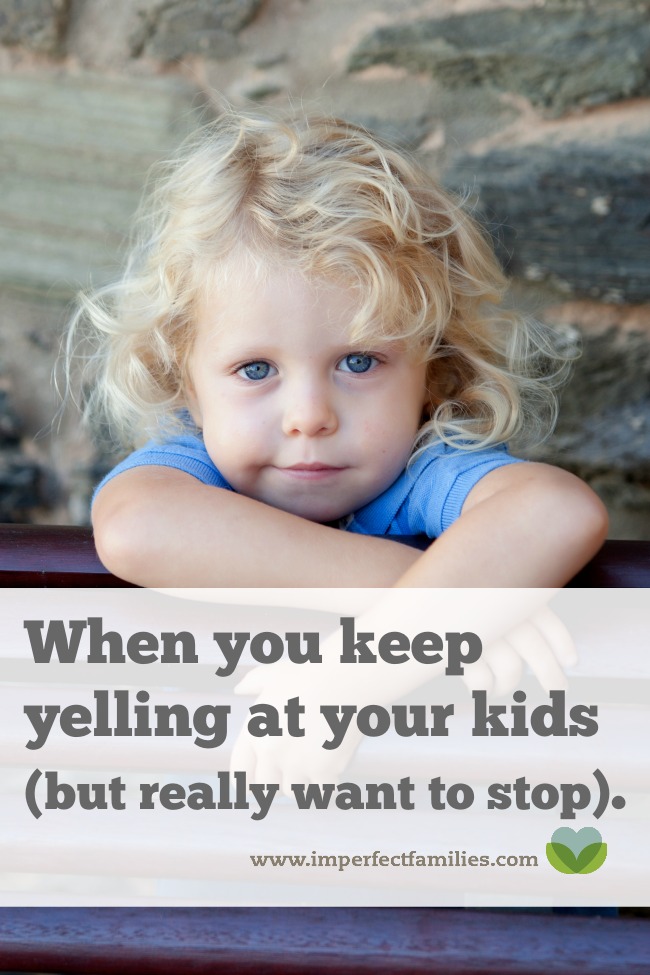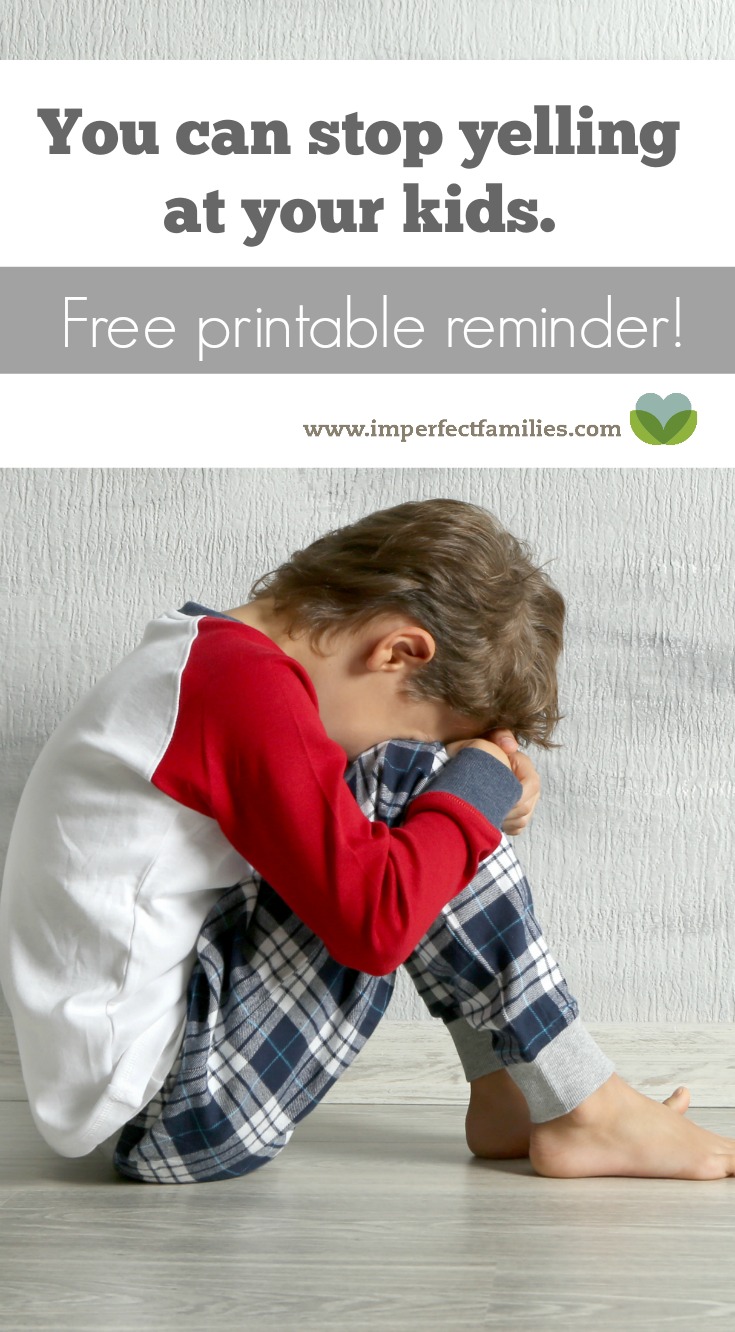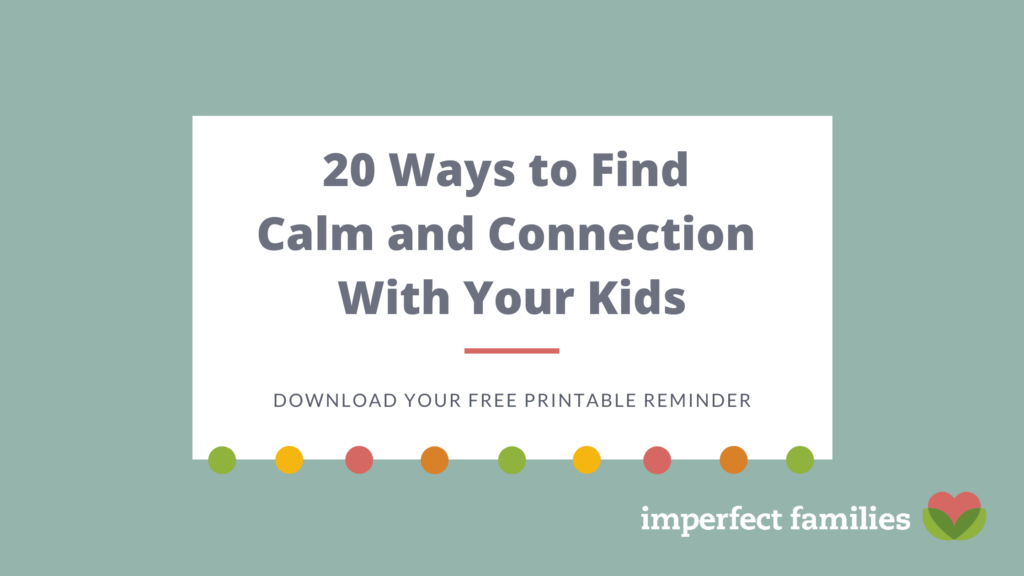
“Get in bed! NOW!” you scream at the top of your lungs.
Any intention of staying calm went right out the window. Along with any amount of patience or rational thinking.
Your kids scramble into their beds and you finally have a chance to breathe. It doesn’t take long for the guilt to sink in…”There I go again! Yelling! Why can’t I just hold it together? What is wrong with me?”
Apologizing, vowing to start fresh tomorrow, you turn off the light and say “good night” to the kids.
There are still dishes piled in the sink and three baskets of clean laundry to fold. At least you have Netflix to keep you company.
And the night ends like any other.
The yelling cycle.
Two days later, you find yourself in the exact same situation.
Standing in the hallway, waiting, because your kids are refusing to get into bed.
In 30 seconds, you will meet your edge and yell at your kids.
And, just like before, they will get into bed, you will apologize, say “good night” and zone out to Netflix.
Your intentions are good! You want to stop yelling. And even though you vow never to do it again, more than likely, you will.
What’s missing?
An interruption.
If you want to break the yelling cycle, you’re going to have to make some changes. But knowing what to do differently can feel overwhelming.
So, let’s not focus on trying to find the solution right now.
Let’s start with an interruption.
Instead of rushing ahead with whatever’s next on your to-do list and brushing aside all of those big, uncomfortable feelings, make an intentional choice to pause and reflect on what just happened.
- When did things get off track?
- What “warning signs” did my body give me?
- Was it one thing or a combination of things that made it difficult to stay calm?
- What words or phrases triggered an emotional reaction in me?
- What behaviors or actions triggered an emotional reaction in me?
- What was I feeling in the moment?
- What thoughts were going through my head?
- What made it difficult to stay calm today vs. other days?
- How do I feel about myself? Are these thoughts true? Helpful?
- What do I need in order to make a different choice next time?
- Is there something I could have done differently?
- What made it hard to do that today?
- Is there something I could have said differently?
- What made it hard to say that today?
- What would I tell myself if I could go back 5 minutes (before the yelling happened)?
See, when you take time to interrupt the yelling cycle, to break it apart, to really look at it from an objective perspective, you have an opportunity to change it.
You might even move toward a solution.
But don’t worry if you still feel stuck.
Give it time.
These questions may feel awkward and uncomfortable. You may feel silly talking to yourself. Or, you may find that you feel even worse now that you’re actually facing the feelings (instead of brushing them aside).
It’s ok for this to be a process.
Start small. Pick a time when you’re just mildly irritated or just slightly annoyed, then take a second to explore some of the questions.
Be curious, rather than critical.
And, don’t rush it.
At first, it may help to take a few minutes and write your answers in a journal or notebook. Soon, it will start to feel less “formal.” You may find that you can run through a few questions on the spot – maybe even while you’re still standing in the doorway of the kids’ bedroom.

The benefits of reflection.
The beautiful thing about reflection is that the answers and solutions often become extremely clear.
Instead of feeling overwhelmed and uncertain, you start to see patterns in your behavior. You may start to notice when you are triggered and are able to catch yourself before things get too heated.
You may start to realize that your kids have a pattern to their behavior too. You are able to work together to create new ways of interacting that avoid these hot-button scenarios or manage them with less conflict.
You may also realize the depth of the shame, despair, and loneliness you feel. You may realize that your thoughts are toxic and are affecting you on a very emotional level.
That is ok.
If you find yourself in this place, the first step may be to reach out for help. To find a trusted friend, a mental health professional, or a parent coach to support you as you address these thoughts and move forward in a positive direction.
Laundry can wait.
And so can Netflix.
Remember to reflect.
Get your free printable reminder to pause and reflect (plus questions to consider) and sign up to have simple, encouraging parenting tips sent to your inbox from Nicole Schwarz, LMFT & Parent Coach.
By signing up to receive this freebie, you agree to my Disclosure and Privacy Policy.




Comments have been turned off to retain the privacy of all families. If you have a question or comment on the topic, you're always welcome to contact me.